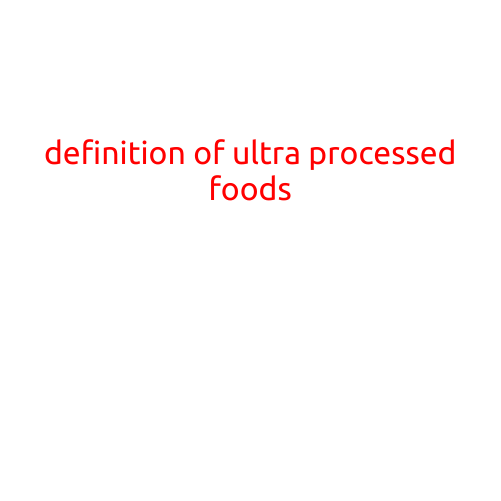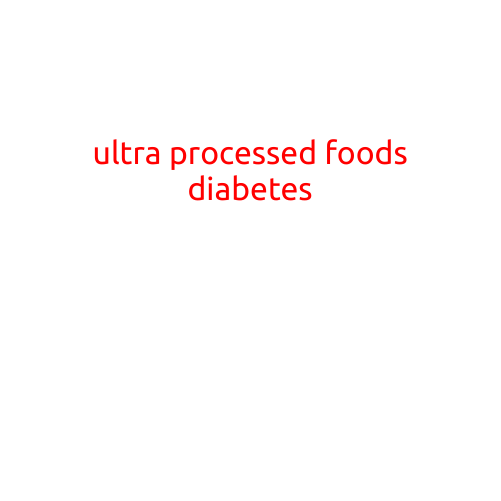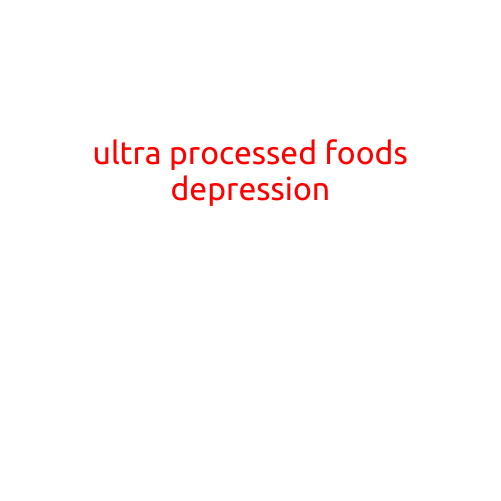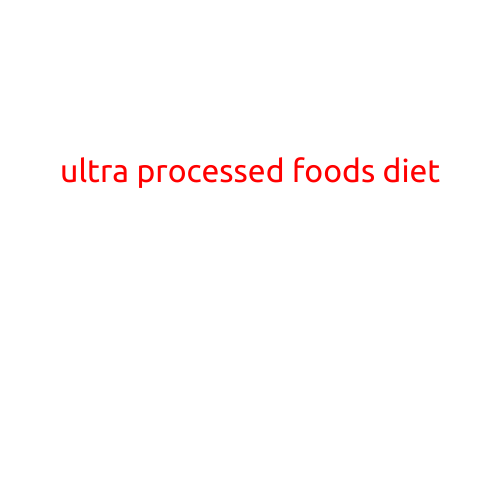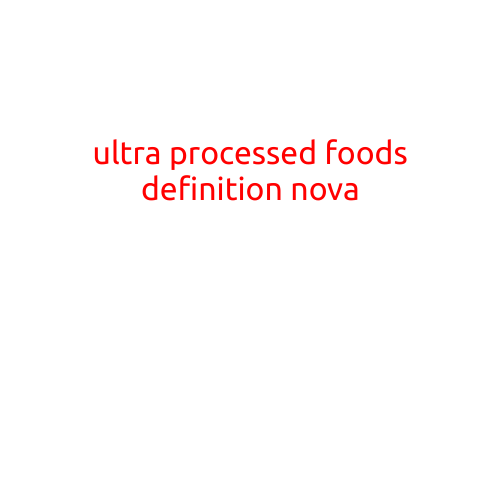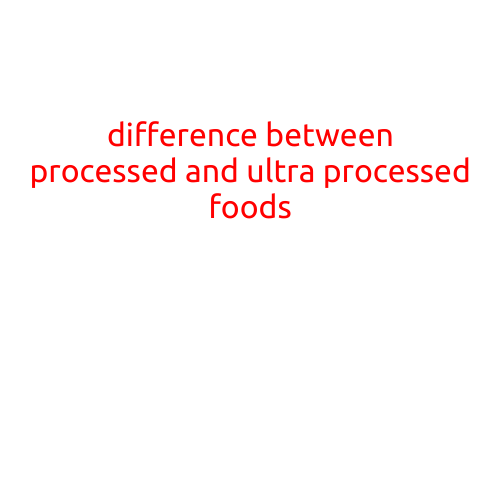
The Difference Between Processed and Ultra Processed Foods: What You Need to Know
In today’s world, it’s harder than ever to escape the temptation of processed and ultra-processed foods. They’re convenient, affordable, and often incredibly tasty. But are they good for you? The answer is a resounding no. Processed and ultra-processed foods have been linked to a range of negative health effects, from weight gain and obesity to increased risk of chronic diseases like heart disease, type 2 diabetes, and certain types of cancer.
So, what’s the difference between processed and ultra-processed foods? And which ones should you be avoiding? Let’s dive in.
What Are Processed Foods?
Processed foods are foods that have been modified from their natural state to extend their shelf life, improve their texture, or enhance their flavor. Examples of processed foods include:
- Canned goods like beans, vegetables, and soups
- Frozen meals like pizzas and TV dinners
- Baked goods like bread, pastries, and cakes
- Packaged snacks like crackers and chips
- Breakfast cereals
Processed foods can be identified by the presence of additives like preservatives, coloring agents, and flavor enhancers. While not always unhealthy, processed foods can be high in salt, sugar, and unhealthy fats.
What Are Ultra-Processed Foods?
Ultra-processed foods, on the other hand, are foods that have been processed to the highest degree possible. They’re designed to be highly shelf-stable, easy to prepare, and convenient to consume. Ultra-processed foods often contain a mix of processed ingredients like additives, flavor enhancers, and sweeteners, combined with a process called “re-formulation” to create a unique taste, texture, and appearance.
Examples of ultra-processed foods include:
- Frozen pizza rolls
- Processed meats like hot dogs and sausages
- Sugary drinks like soda and sports drinks
- Refined grains like white bread and sugary cereals
- Packaged snack foods like cookies, crackers, and chips
Ultra-processed foods have been linked to a range of negative health effects, including:
- Increased risk of weight gain and obesity
- Higher risk of chronic diseases like heart disease, type 2 diabetes, and certain types of cancer
- Poor gut health due to the absence of fiber and beneficial bacteria
- Nutrient deficiencies due to the lack of whole, nutrient-dense ingredients
Why Are Ultra-Processed Foods So Problematic?
Ultra-processed foods are problematic for several reasons:
- Lack of nutrients: Ultra-processed foods are often devoid of essential vitamins, minerals, and fiber, leaving you feeling hungry and tired, and potentially leading to nutrient deficiencies.
- High in added sugars and unhealthy fats: Ultra-processed foods are often high in added sugars and unhealthy fats, which can increase your risk of chronic diseases like heart disease and type 2 diabetes.
- Addictive properties: Many ultra-processed foods contain addictive substances like sugar, salt, and unhealthy fats, which can activate your brain’s reward centers and lead to overconsumption.
- Link to mental health issues: Some research suggests that a diet high in ultra-processed foods may be linked to an increased risk of depression, anxiety, and other mental health issues.
How to Avoid Ultra-Processed Foods
So, how can you avoid ultra-processed foods and maintain a healthy diet? Here are some tips:
- Cook from scratch: Cooking meals from scratch using whole, nutrient-dense ingredients is the best way to ensure you’re getting the nutrients your body needs.
- Choose whole grains: Opt for whole grains like brown rice, quinoa, and whole-wheat bread instead of refined grains like white rice and white bread.
- Emphasize fresh produce: Fresh fruits and vegetables are the perfect snack or addition to any meal.
- Read labels: Check food labels to identify added sugars, unhealthy fats, and other ingredients you’re trying to avoid.
- Avoid convenience foods: Convenience foods are often ultra-processed and high in unhealthy ingredients. Opt for whole, unprocessed foods instead.
In conclusion, the difference between processed and ultra-processed foods is significant. While processed foods can be a healthy part of a balanced diet, ultra-processed foods are linked to a range of negative health effects. By understanding the differences between these two types of foods and making informed choices, you can take control of your health and wellbeing. Remember, a diet rich in whole, nutrient-dense foods is the best way to ensure you’re getting the nutrients your body needs to thrive.
